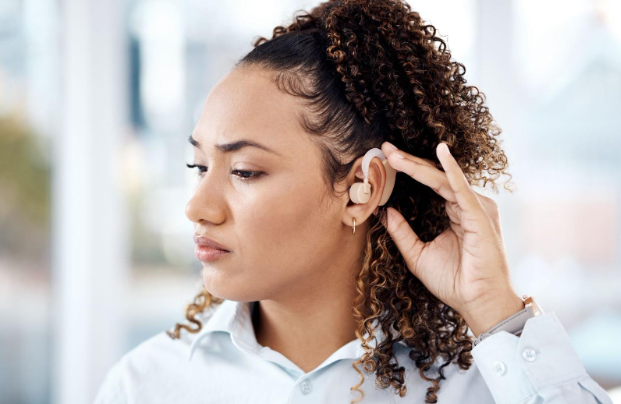How To Protect Your Hearing And Prevent (Further) Hearing Loss
Protecting your hearing is essential for overall well-being. Learn essential ways of protecting your hearing and preventing hearing loss right here!

Protecting your hearing is essential for overall well-being. Unfortunately, there tends to be a prevailing oversight when it comes to taking preventive measures for hearing health.
Rather than proactively safeguarding our ears, attention is typically focused on addressing hearing loss only when it has already reached mild or severe stages, especially among young adults who neglect their hearing health and practice bad hearing habits such as listening to loud music through headphones for long periods of time, which can contribute significantly to hearing damage over time.
This article will address the importance of hearing protection and hearing safety and offer insights into preventive measures to avoid further deterioration of auditory health.
The Impact of Unaddressed Hearing Loss
Hearing loss can be attributed to various factors, including genetics, birth complications, chronic ear infections, and exposure to loud environmental noises.
According to the World Health Organization, by 2050, nearly 2.5 billion people are projected to have some degree of hearing loss, and over 1 billion young adults are at risk of permanent, avoidable hearing loss due to unsafe listening practices.
When unaddressed, hearing loss can impact many aspects of an individual’s life. The good news is that many causes that lead to hearing loss or worsening of hearing loss symptoms can be avoided through different strategies and lifestyle changes across the life course.
How To Protect Your Hearing
Preventing hearing loss or worsening symptoms can be avoided with early detection, proactive management strategies, immunization, and safe listening practices.
Let’s look at some best practices you can start implementing in your life today.
Limit Exposure to Loud Noises
Hearing loss can be temporary or permanent and progresses as long as the exposure continues. Hearing damage from noise is primarily due to the loudness of the sound, listening duration, and the distance of sound input relative to the inner ear.
Excessive exposure to loud sounds is a significant contributor to hearing damage. When possible, avoid noisy environments, such as loud concerts or working environments that require exposure to loud noises.
Use Hearing Protection
Invest in high-quality ear protection, such as earplugs, especially in environments where loud noises are unavoidable. Whether attending loud concerts, working in construction, or participating in recreational activities like shooting sports or motorbiking, having the right hearing protection can make a substantial difference in protecting your hearing.
Remember to check for noise reduction ratings (NRR) when searching for a good hearing protection device. NRRs indicate the level of protection the device offers. A good NRR reduces noise levels between 25% to 50%. Generally, you should opt for a device with an NRR of at least 30.
Lower the Volume
Be cautious of the volume level through headphones, earbuds, or speakers, especially if you love listening to music or podcasts all day. Find a comfortable volume that allows you to hear without causing strain or discomfort. Consider using volume-limiting features available on many devices to prevent unintentional exposure to excessively loud sounds. A good rule-of-thumb is that if you need to shout, the volume is too loud.
Take Breaks
Give your ears regular breaks from continuous exposure to loud sounds. For example, if you're used to working through the day with headsets on or blasting music on noise-cancelling devices during your commute, taking short breaks can provide your ears with the necessary rest to recover and minimize the risk of long-term damage.
Maintain Ear Hygiene
Did you know ear infections can lead to hearing loss? Keeping your ears clean and dry is key. Use gentle cleaning methods, and consult a healthcare professional if you suspect any ear issues.
Regular Check-ups
Schedule regular check-ups or get a baseline hearing test with an audiologist or healthcare provider to monitor your hearing health. Early detection of any issues allows for timely intervention and protection of your hearing.
Mind Medications
Some medications may have adverse effects on hearing. Consult with your healthcare provider about the potential auditory impacts of medications you are taking, and explore alternative options if necessary. Remember, always check the labels!
Stay Hydrated
Staying hydrated helps maintain the delicate balance of fluids in the inner ear, which is crucial for optimal hearing function. Keep a water cooler by your desk to remember to drink up during the day.
Avoid Smoking
Smoking has been linked to an increased risk of hearing loss. Quitting smoking not only benefits your respiratory system but also contributes to preserving your hearing.
Maintain a Healthy Diet
Incorporate hearing-friendly foods into your diet, such as omega-3 fatty acids commonly found in salmon, tuna, sardines, folic acid, and antioxidants such as vitamins B12, C, D, and E available in fruits and leafy greens.
Use Soundproofing
Consider incorporating soundproofing measures if you're frequently exposed to loud noises in your living or working environment. This can include using acoustic panels, rugs, or curtains to reduce the impact of external noise and create a quieter space for your ears.
Using protective measures can help prevent further damage to your ears and extend the healthspan of your hearing. Simultaneously, exploring the latest cutting-edge research and potential innovative treatments adds an element of excitement, offering promising avenues to enhance overall auditory well-being.
Research and Innovative Treatments in Hearing Health
From gene therapy to 3D ear models, the landscape of hearing health research is marked by numerous studies and cutting-edge innovations.
Gene therapy focuses on identifying and manipulating the genetic factors contributing to various forms of hearing loss, paving the way for targeted treatments.
Meanwhile, the development of 3D ear models allows researchers to delve into the intricacies of the auditory system, enhancing our comprehension of its complex structures and functions.
Cell restoration research explores regenerative approaches, investigating ways to repair or replace damaged hair cells within the inner ear, a crucial element for auditory function.
These studies contribute to the evolution of innovative treatments, potentially revolutionizing how we approach hearing health by tailoring interventions.
Conclusion
It is crucial to raise awareness about the significance of protective measures, such as using earplugs in noisy environments, turning down the volume on personal audio devices, and taking breaks from prolonged exposure to loud sounds.
Educating individuals about the cumulative effects of noise exposure and promoting healthy hearing habits can help mitigate the risk of future hearing problems. Incorporating these strategies into your lifestyle can significantly reduce the risk of hearing loss and prevent further hearing damage. In addition to monitoring noise exposure and tracking volume, there are noise protection options to consider.
Moreover, routine hearing check-ups should be emphasized as a preventive rather than a reactive measure. Just as we visit the dentist for regular check-ups to maintain oral health, incorporating routine hearing screenings into healthcare practices can detect early signs of hearing issues and enable timely interventions.





